Introduction
Trading Card Games, or TCGs, are a fascinating mix of strategy, collecting, competitiveness and social interactions.
In these games, players experience something unique, with different setups, game styles, cards, and ways to play that are satisfying to casual players and more competitive players alike, and even entice those who just want to collect the rarest cards. In these games, each card has unique abilities that create infinite possibilities when combined with each other that reflect its player's game style.
Ad
The worlds around TCGs have striking storylines and fan communities across the world, uniting players across the globe, and making it an extremely social game that challenges the mind, inspires creativity and strengthens friendships.
Get to know a bit more about these games' origins, discover the most popular titles currently, find out the difference between TCGs and OCGs, and even delve into the world of digital TCGs in the article below!
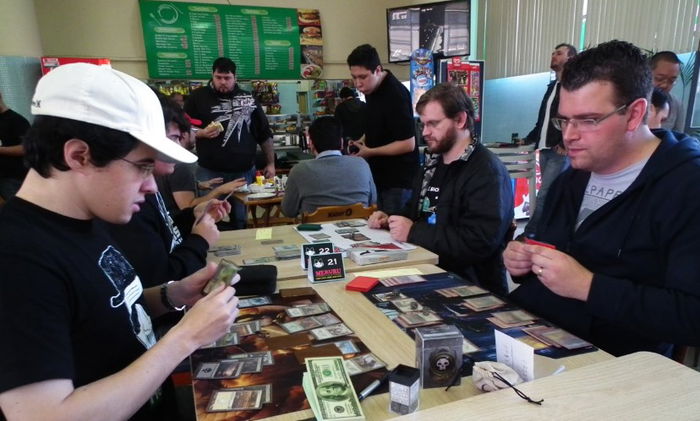
What is the Origin of TCGs?
The Base Ball Card Game was the first deck style which introduced the concepts we know today as part of the TCG genre. It was created by the American company The Allegheny Card Co., and its released was registered on April 4th, 1904.
The Baseball collectible card market was booming in the United States, and, throughout time, other themes were introduced and incorporated, such as movies, comics, and other sports as well.
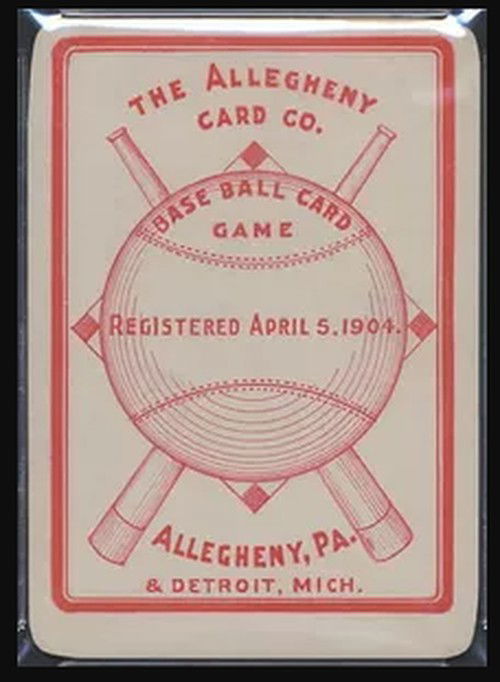
Before the TCG genre really developed, the game market was dominated by the famous Role Playing Games (RPGs), particularly Dungeons & Dragons, from TSR and Wizards of the Coast, the company founded by Peter Adkison in 1990.
Through another friend, Peter met Richard Garfield, which at the time was studying for his doctorate and intended to release a board game called RoboRally. However, Wizards didn't have the funds to launch it yet. To fix this situation, Wizards asked Garfield to create a game that would pay for the release of RoboRally: the game should last for 15–20 minutes. As he was a D&D fan, he developed a project called "Five Magics", a card game based on the Cosmic Encounter mechanic (another board game at the time). From this union, Magic: The Gathering was created.
Magic was the game that revolutionized the market, and introduced the idea of players building their own decks, trading their cards and collecting them, making each player's experience customizable and personal. The future TCGs absorbed this formula and created their own rules, and even created other entertainment sources (bringing some of their games to video game platforms, Japanese comics, books...).
We can mention, out of these various other games that followed Magic's footsteps: Spellfire: Master the Magic (based on scenes from Advanced Dungeons & Dragons, but it was discontinued in 1997), Vampire: The Eternal Struggle, Pokémon TCG, Yu-Gi-Oh! TCG, Battle Scenes, Flesh and Blood and many others that are released every year.

What is the Difference between TCG and OCG?
It is very common for new players to encounter both terms and have questions about what is one and what is the other. After all, what is the difference between TCGs and OCGs?
As previously introduced, TCGs are nothing more than the cards initially released in western markets, such as North America and Europe. As it goes, there is a significant delay between the card releases in the Japanese market and the release of these same cards in western markers. Therefore, in a few games, TCG cards might not be updated compared to their original versions.
Ad
OCGs are original versions of some cards, commonly released in Japan before they're released in any other market around the world. So, in a few games, OCG presents a set of cards that is more updated than its TCG counterpart.
Besides this difference regarding releases, some rules are also adapted between both game modes, according to the market in question. The list of banned, restricted and limited cards for tournaments and other competitive modes can vary from TCG to OCG.
Both games' "metagames" are impacted by these changes, which might cause different decks to appear in TCGs and OCGs, and this in turn might influence competitive players directly and significantly.
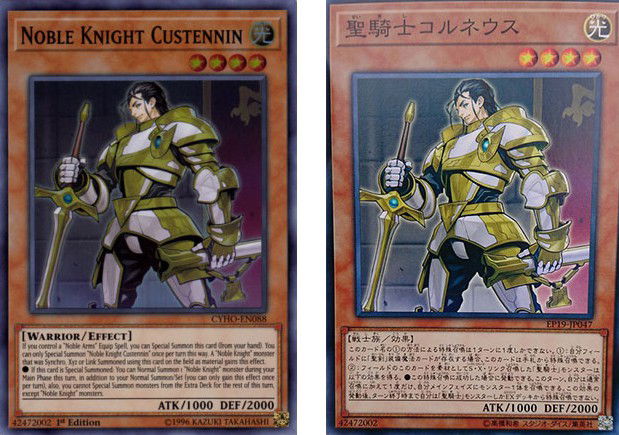
Main TCGs
Ever since Magic: The Gathering was released in 1993, many other TCGs have been released around the world. Check out a bit more about each of the most popular titles!
Magic: The Gathering
Magic is the TCG pioneer, created in 1993. Players use magic cards and creatures in their decks to defeat their opponents. It is known for its strategic complexity and for having introduced the TCG phenomenon.
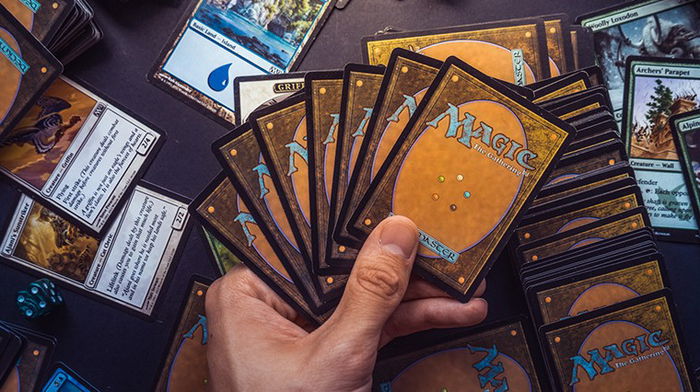
Pokémon TCG
With an accessible mechanic and the popularity of the Pokémon franchise, this TCG captivates players of all ages, making it one of the most popular and appreciated titles across the world. It allows players to collect their Pokémon and battle other trainers.
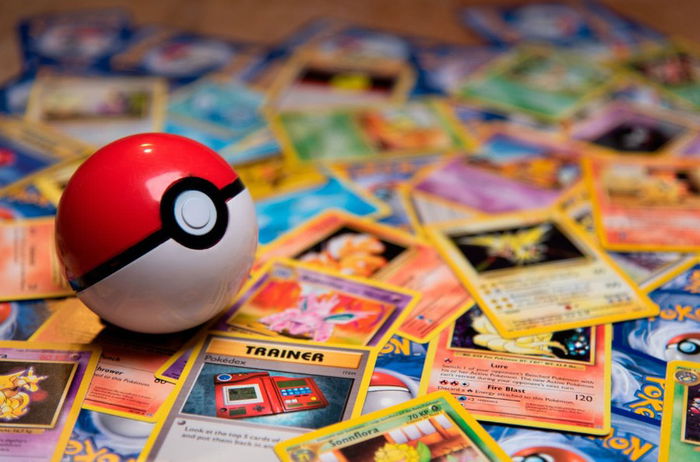
Yu-Gi-Oh!
Based on the anime and manga series of the same name, Yu-Gi-Oh! is a fast-speed TCG, in which duelists summon monsters and play spells and traps to win. It is popular because of its impressive card combos. It has both a TCG version and an OCG one.
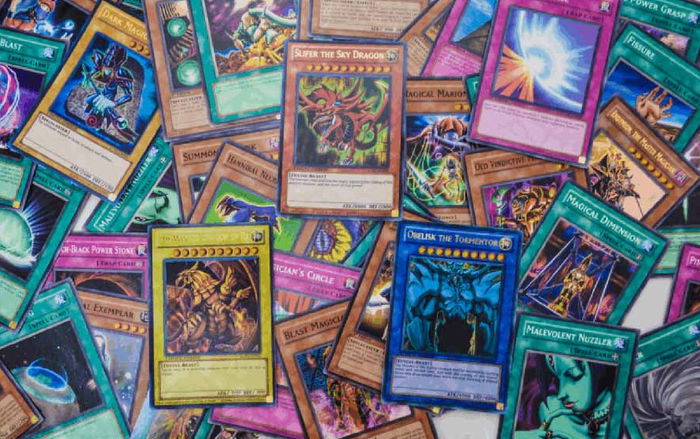
Flesh and Blood
This TCG is relatively new and has been popping off lately. Set in a dark fantasy world, players use heroes and unique strategies in intense combats, focused on the interaction between cards and tactical abilities.
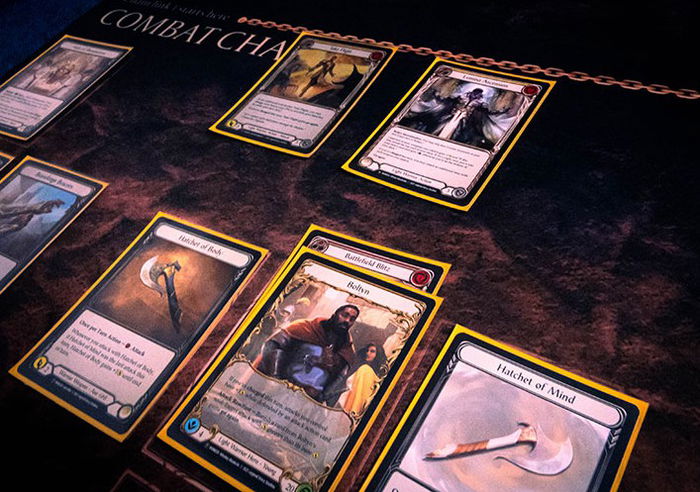
Main Digital TCGs
With the advance of technology and new platforms, many other games were released. Magic itself got its digital version in 1997 for Windows 95, called only "Magic: The Gathering". In it, the player would travel and fight against various other enemies to, like so, acquire new cards and then defeat the five powerful mages that represented each Magic color.
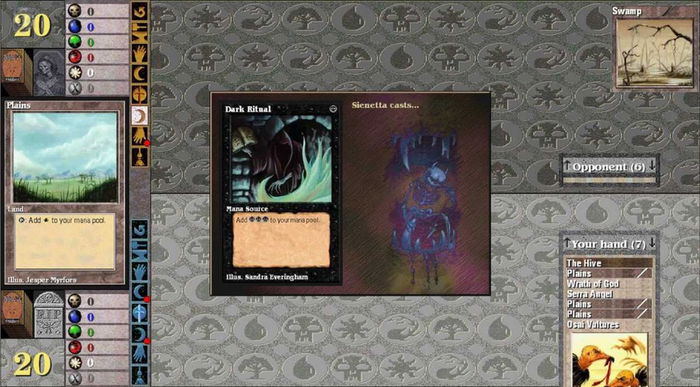
Throughout time, various other digital Magic games were released, such as "Duel of the Planeswalkers", "MTGO" (Magic Online), Magic Duels and, more recently, Magic Arena (MTGA). Besides other digital versions of Magic, other games also migrated to digital platforms, such as Yu-Gi-Oh! TCG, and got various other versions for different platforms as well.
Ad
Other TCGs were created entirely digitally, and don't have physical versions. Players who don't have access to card game stores or other means to start their TCG journey found in these games a way to be a part of this community and even compete in entirely digital tournaments.
Among the most popular and famous TCG online titles, we can mention:
Hearthstone
Hearthstone is Blizzard's digital TCG based on the Warcraft world. It is known for its accessibility and fast matches, in which players choose a main class, summon minions and cast spells in strategic battles.
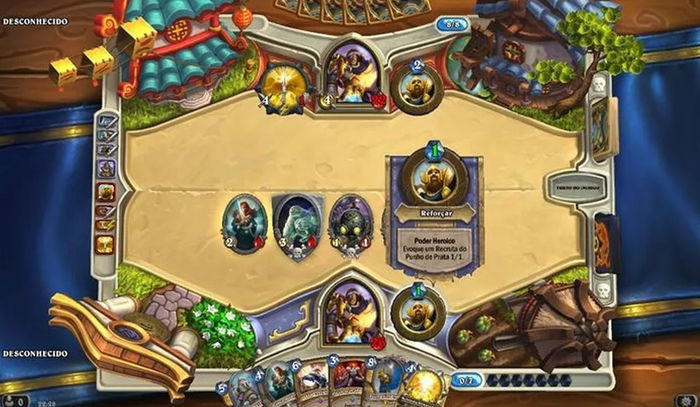
Legends of Runeterra
This Riot Games TCG is based on the League of Legends world and offers innovative mechanics, such as alternate rounds and a deep focus on player interactivity. It has a unique mix of strategy and tactical might.
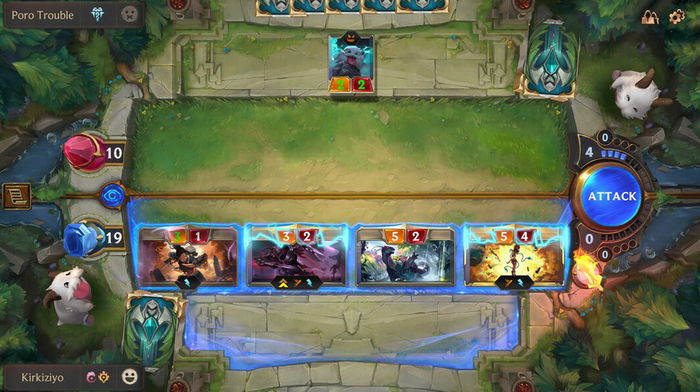
Gwent
Based on The Witcher universe, Gwent is a TCG in which players build decks with different factions and compete in rounds of card duels. It is praised for its strategic depth and exciting plot twists.
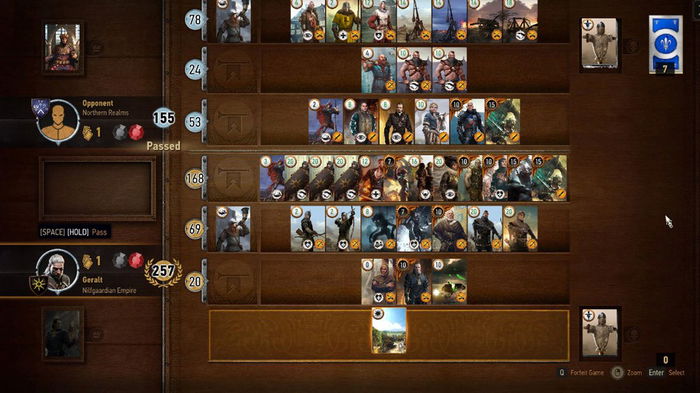
How to Start Playing TCGs?
You should know that starting your Trading Card Game (TCG) journey is an exciting adventure that mixes strategy, creativity and social interaction. If you're considering delving deep into this fascinating world, here are some suggestions:
Choose a TCG
First, choose a TCG that appeals to you. There are options for all tastes, from the classic "Magic: The Gathering", until digital TCGs, such as "Hearthstone" and "Legends of Runeterra". Do your own research and find out which one is the best for you, based on your interests, universes and game types, from the most casual ones to the most competitive ones.
Learn the Rules
Get familiar with the rules of the game. Many TCGs offer online tutorials and guides for beginners. Dedicate some time to learn their mechanics, combat phases, turn phases and card abilities.
Get a Starter Deck
To start, get a Starter Deck. Usually, these decks are designed for beginners, and they provide a solid base for the game. As you play and feel more confident, you can upgrade your deck with additional cards and make it the best for you.
Play with Friends or at Local Events
Play with friends or take part in local events to get some experience. The interaction with other players is a great way to learn and have fun.
Build your Collection
As you get more experience, start expanding your card collection. You can buy card booster packs or trade cards with other players to upgrade your deck and experiment different strategies.
Keep Up with the Latest News
Keep up with the new sets, forbidden cards and strategies as the TCG you have chosen evolves. Understand the metagame and adapt your deck as much as you need.
Ad
Enjoy the Journey
Remember that TCGs are ability and strategy games, but they're also about fun. Celebrate your victories, learn from your defeats and enjoy the continuous progress journey.
Main Tip
As you get experience, you can consider competing at competitive events or playing online. TCGs offer a dedicated and rich community, in which you can make new friends, trade cards and challenge yourself to become a master at the game. So, don't hesitate when embarking in this exciting journey and unraveling the secrets and challenges of your favorite TCG.
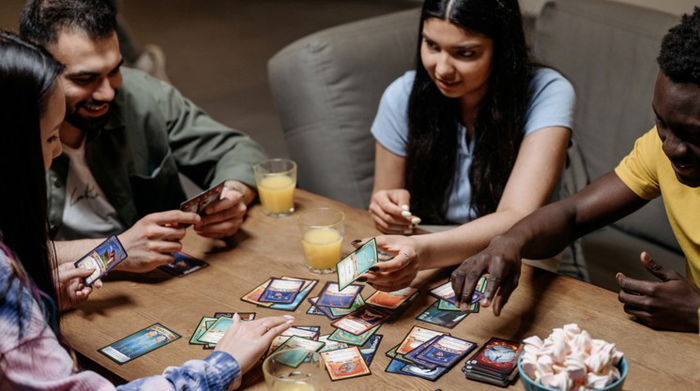
Final Words
TCGs perform a vital role in the modern entertainment sector, drafting a rich history since the innovative creation of "Magic: The Gathering". Its social importance is showcased by the passionate communities built and lasting friendships created. TCGs offer fun and strategic challenges, both in traditional physical formats and the exciting digital variants, captivating a diverse, global fan base, and becoming an essential part of the game scene.
Comment down below if you're already a part of this wonderful community that grows more and more each year or if, after reading this article, you became interested in it. Share with us the experiences you had thanks to a card game, and maybe make some new friends here to play with you!
To avoid facing cheaters, check out our article on on 5 Tips to Avoid Cheaters in a Match. Protect Yourself!
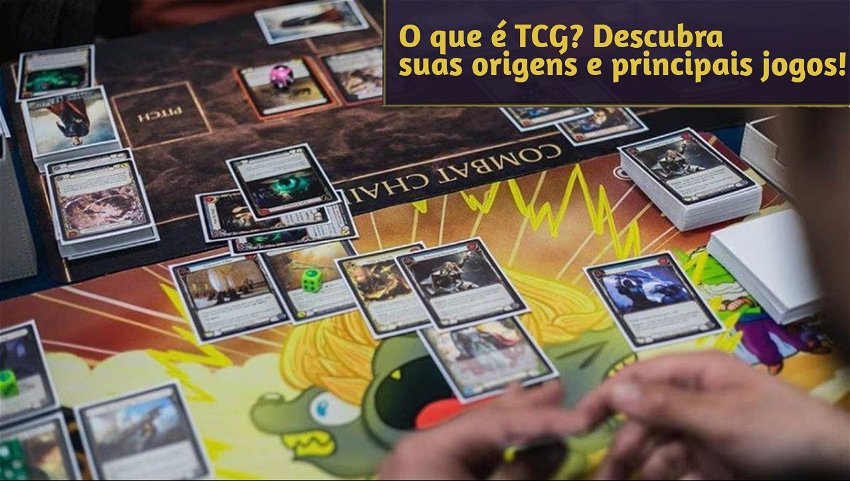



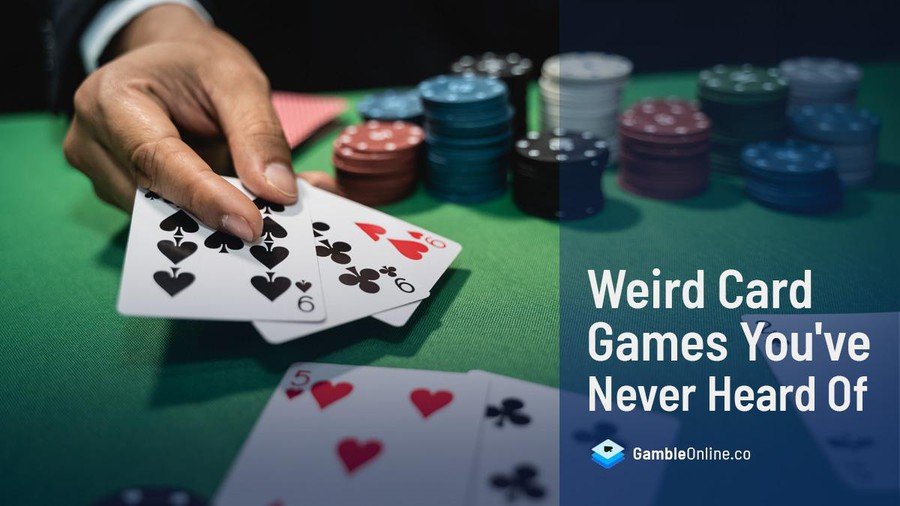
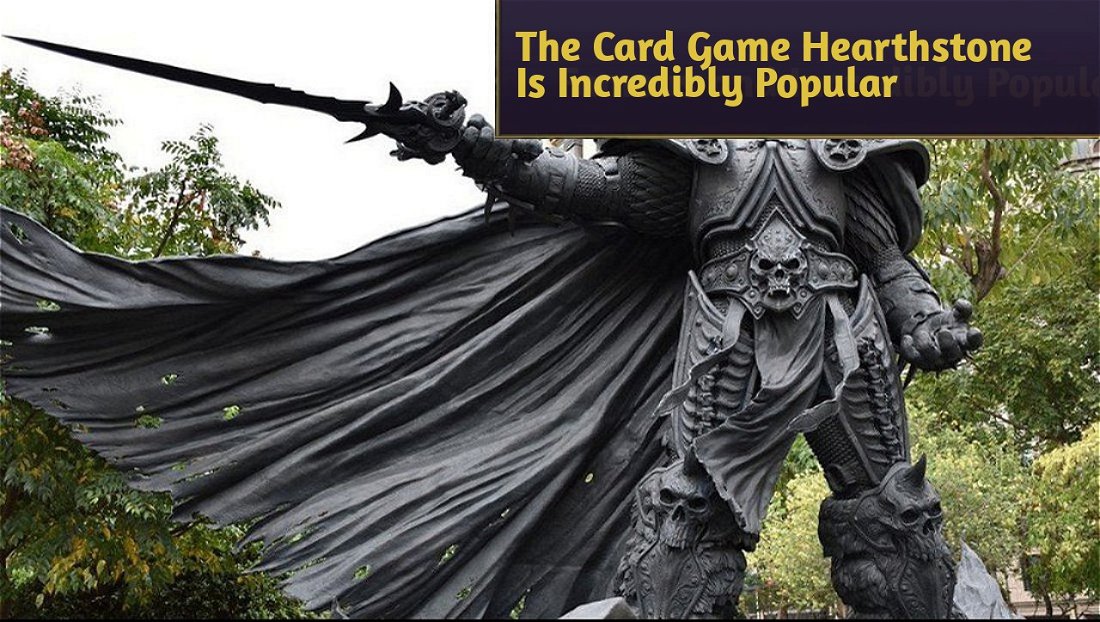



— Comentários0
Seja o primeiro a comentar